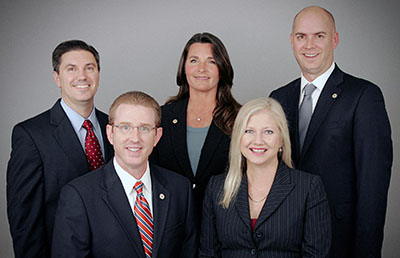On Tuesday, July 10, the Wellington Village Council agreed to pay off some of the village’s existing debt and also approved several projects to take place in the near future.
As of the Tuesday night meeting, the Village of Wellington is largely debt free. After unanimously approving a transfer of funds and amending the 2017-18 budget to pay off $1.6 million remaining in the village’s debt service fund from a 2014 loan, the council saved more than $16,000 and no longer has the outstanding debt.
“Other than Saddle Trail, this [payment] essentially makes us debt free,” said Councilman John McGovern, referring to the Saddle Trail Park road improvement project, which was funded in cooperation with neighborhood residents.
The payoff would also allow the village to more freely borrow money in the future, if it needed to.
The council then moved on to discuss whether they would approve the usage of the village’s law enforcement trust fund — a total of $354,000 — to purchase and install an automated license plate reader system throughout the community.
The system would function through the means of numerous cameras strategically positioned in various locations throughout the village, in order to aid law enforcement to identify and find stolen vehicles, vehicles identified under silver or amber alerts, or vehicles being tracked for other criminal reasons.
“This would allow the Palm Beach County Sheriff’s Office to identify stolen cars and be able to start tracking them,” Village Manager Paul Schofield explained.
Councilwoman Tanya Siskind wanted clarification about the money.
“To be clear, the funds [are coming from] the law enforcement trust fund, so it’s not coming out of taxpayers’ dollars,” she said. “However, we would own and maintain the equipment, which would cost about $35,000 a year. I want to make sure it’s an effective use of money.”
PBSO’s District 8 Capt. Rolando Silva explained that the system would not only effectively send alerts to officers on duty about stolen cars in the Wellington area, but it would also allow for communication between officers all over the state and even the region.
“We’ll have to tailor it to the village, but the idea is that we’ll get notified [of stolen vehicles in our area] right away,” he explained.
The system will be particularly useful at night, when most vehicle burglaries and thefts occur.
“When bad guys are coming into the village late at night, when we have an ample [number] of deputies out and about, we’re not able to find them or get alerted that they’re coming into town,” Silva said. “Maybe with this new system, we’ll get alerted in real time.”
The use of the trust fund money for the new system was approved unanimously. The item will come back before the council for final approval once village officials and the PBSO work out a final set price for the license plate reader system.
The council also approved the task order for Mock-Roos & Associates to begin work on the design for the Forest Hill Blvd. C-8 Canal Improvement Project, for a total of $38,058.
The project, which will enhance the older, worn-out canal, was originally priced at a cost that exceeded the village’s budget by about $300,000 in its original design and bid. The new design is expected to receive a significantly cheaper bid, fitting into the budget, which would allow the village to move forward with the project.
The project involves two pipes in the canal running between Palm Beach Polo and the Mall at Wellington Green by the FPL power lines.
“The inspection report we got when we sent a diver down was that they are in really bad shape and that we have to do something soon,” Village Engineer Tom Lundeen said.
The new project design details an open-cut technique as opposed to the micro-tunneling technique of the original, costlier bid.
“[We’re hoping] to save approximately $400,000 and need the $38,000 to invest in the alternate design,” Director of Purchasing Ed De La Vega said.
As the C-8 Canal was described as being in rough condition, and because of its vital drainage points in the village, Vice Mayor Michael Drahos was concerned regarding the goal of saving money in relation to such an important issue.
“My concern would be that we’re over-compensating to attempt to save money here,” he said, asking if the village can be confident that the new plan will not cause further problems down the road.
It was explained that with the new bid, the village would be able to not only possibly carry out the project for a lower price, but also compare the costs and logistics of both the open-cut and the micro-tunneling methods.








